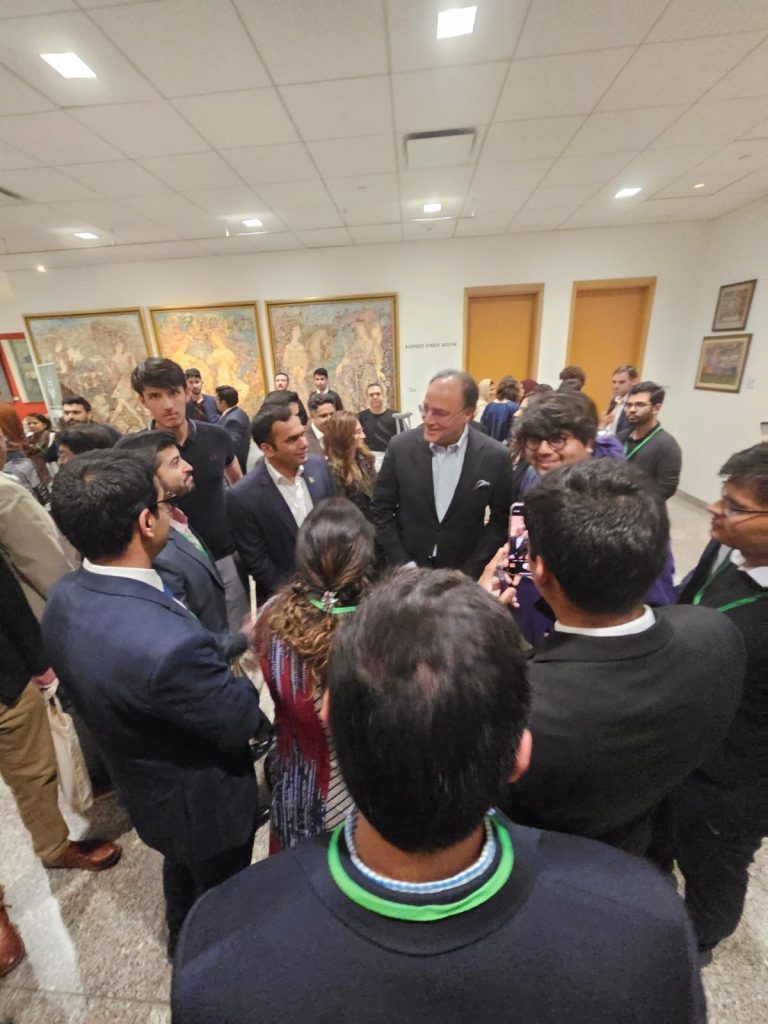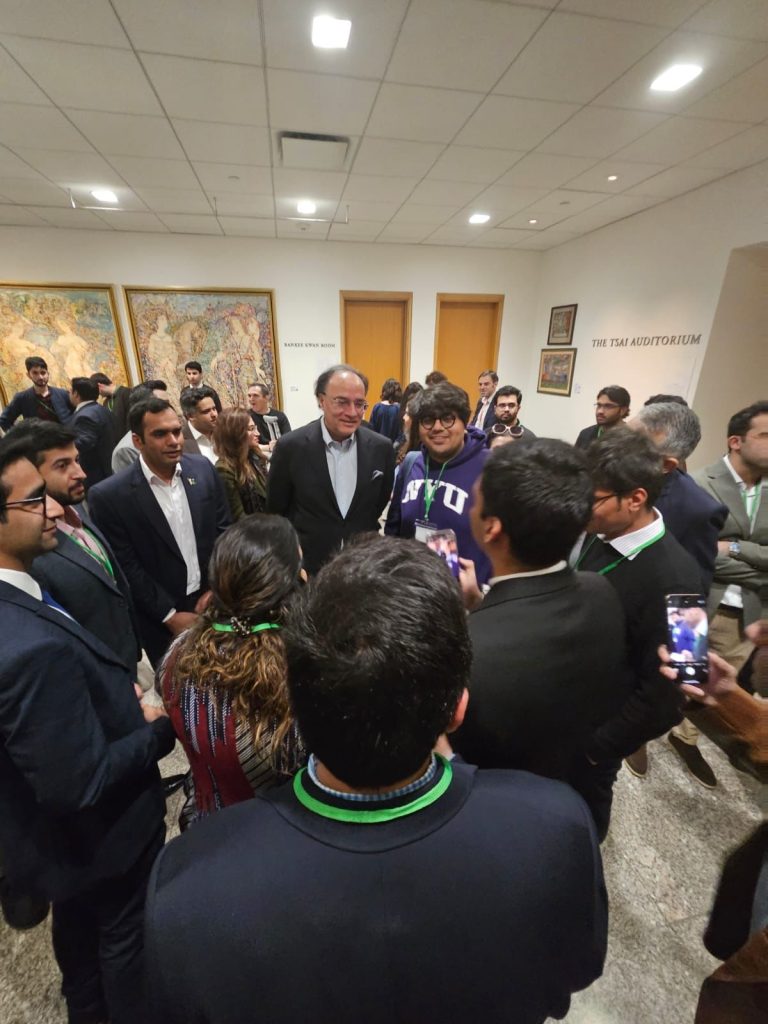In a powerful speech at the “Pakistan Conference 2025” organised at Harvard University, Pakistan’s Finance Minister Senator Muhammad Aurangzeb announced that the economy of the country is finally on the road to recovery and transformation after years of turmoil.
Addressing the topic of “Bridging Distances and Building the Future: The Road to Inclusive Growth and Governance in Pakistan,” the finance minister presented a reform agenda, milestones, and aspirations that showcased a bright future for Pakistan.
Aurangzeb highlighted that inflation, one of Pakistan’s most stubborn challenges, has seen a historic decline. The inflation growth rate has dropped to just 0.7%—the lowest in six decades. Additionally, Pakistan’s foreign exchange reserves have doubled, giving a much-needed cushion to the economy.
“We have stabilized a moribund economy, repaired infrastructure, renewed investor confidence, and fired the growth engine,” he said, and averred that the path to fiscal stability is not the destination but a stepping stone to sustainable development.
Laying down the plan of action for the government, the finance minister emphasized the need for fiscal discipline, inflation management, energy reforms, taxation overhaul, governance reform, and the privatization of loss-making state-owned businesses.
He disclosed that Pakistan has been able to lower its debt-to-GDP ratio from 75% to 67.2%, and it will be taken below 60% in the medium term. Transparent privatization of state-owned enterprises will save about 2% of GDP each year.

Aurangzeb also unveiled plans to enhance digital banking, deepen capital markets, and enhance green finance to make the financial sector more resilient and inclusive.
The minister stressed that Pakistan is abounding with unexplored possibilities—from mineral wealth and IT growth to green energy ventures and a vibrant youth pool of talent.
“Human development has to be the basis for our constant and inclusive advancement,” he stated, calling for investments in education, skills, and innovation for the long-term.
He also stated that Pakistan’s current account recorded a surplus of more than $1 billion in March 2025, while foreign direct investment rose by 44%. IT exports grew by 24%, and remittances are likely to cross an astounding $38 billion this year.
Besides that, Pakistan enjoyed a fiscal surplus for the first time in 24 years and rating agency Fitch raised its outlook for Pakistan to “Stable” on a “B-” rating—the biggest confidence enhancer for investors from across the world.
Speakers to policymakers, scholars, business owners, and students assembled, Aurangzeb requested the world’s cooperation to walk with Pakistan into its irreversible pathway of progress and modernization.

He especially emphasized Pakistan’s resolve for climate resilience, highlighting cooperation with the IMF’s Resilience and Sustainability Facility (RSF) and the World Bank’s Country Partnership Framework (CPF) for enhancing infrastructure and agriculture against the effects of climate.
“Pakistan’s future will be determined by courageous and much-needed choices. If we invest in our citizens, transform the economy, and remain on the road to reforms, Pakistan will become a more robust, greener, and competitive country,” he concluded.
Organized once a year in the United States, the Pakistan Conference is Harvard University’s biggest event hosted by Pakistani students. It is where solutions to the economic, political, and societal problems of Pakistan are discussed and solutions are framed, while, most importantly, presenting the country’s resilience, talent, and aspirations to the rest of the world.
During the conclusion of the conference, Minister Aurangzeb interacted with delegates, responding to questions and elaborating on Pakistan’s economic future with optimism and honesty.



